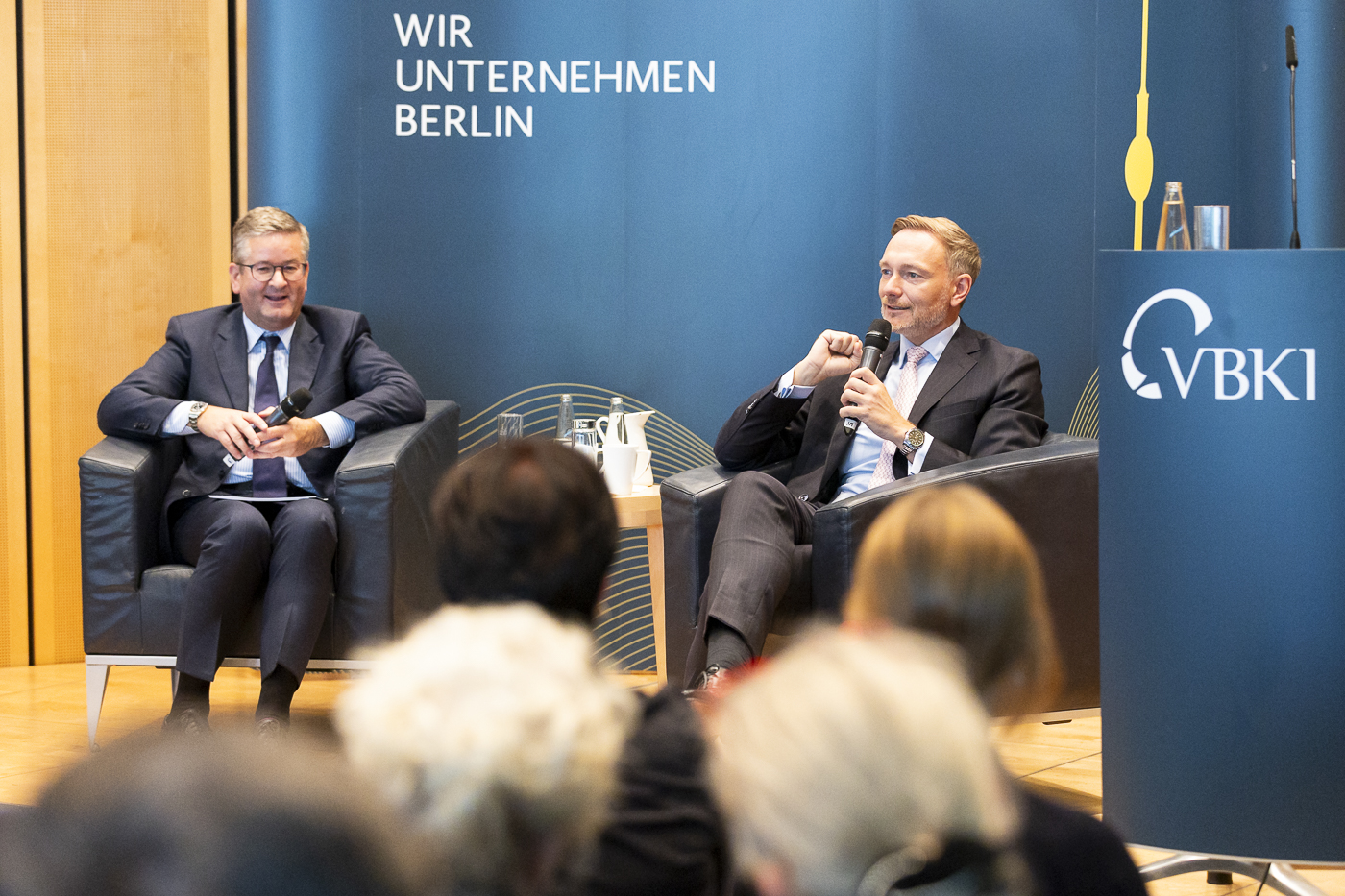"We have to beat the pace of the others"
Federal Minister of Finance Christian Lindner visits the VBKI
Text: Sebastian Thomas | Head of Communication & Marketing
Germany is still treading water, and the outlook for the coming year also promises good things in homeopathic doses at best: according to the current forecast, economic growth is likely to be in the region of 0.8 percent. How can Germany get back on track? Which screws do we need to turn to generate more growth momentum between the North Sea and the Alps? How can we strengthen our international competitiveness?
Federal Finance Minister Christian Lindner is convinced that Germany needs an economic turnaround. Germany has been losing competitiveness for 10 years and is now only in 24th place in an international comparison. In 2014, Germany was still in 6th place, "We have neglected the question of our economic substance for a decade," said the FDP politician at the VBKI Business Breakfast. The fact that we have slipped down the international rankings in recent years means that we now have to outpace the others in order to catch up.
More than 150 members and friends of the VBKI attended the event to discuss the situation and prospects for Germany as a business location with Christian Lindner. After being welcomed by VBKI Honorary President Klaus von der Heyde, the FDP politician explained why, in his view, the path to more growth and competitiveness inevitably involves strengthening the supply side: "It is not the job of politicians and civil servants to prescribe an economic structure." Only through competition will sustainable value creation be achieved, only through competition will the best ideas and solutions prevail.
In his impulse, Linder distanced himself from a school of thought that - based on the US "Inflation Reduction Act" - favors stimulating the economy by means of debt-financed subsidies. He justified his rejection on the basis of both regulatory and fiscal policy considerations: "In the USA, the acceptance limit of the capital markets has already been reached," said Lindner. The key to a successful turnaround in Germany also lies in improving the framework conditions for companies - and not in deficit spending.



The subsequent discussion, moderated by Michael Salcher, member of the Executive Committee and Treasurer of the VBKI, focused on the design of these framework conditions, among other things. According to the Federal Minister of Finance, Germany has achieved quantitative consolidation of public finances. During his time in office, the debt ratio had fallen from 69% to below 64%, and the 60% "permitted" by EU standards would be reached in two or three years. However, Lindner sees a problem with the quality of public finances. Public investment spending has risen sharply from 39 billion euros in 2019 to 80 billion euros in the current year. However, more would be possible if social spending did not increasingly crowd out investment spending. The fiscal burden of irregular migration alone amounts to 24 billion euros.
Lindner sees little political leeway for a reduction in taxes across the board - as desirable as it would be. The exception: the solidarity surcharge, which can be decided at federal level without the involvement of the federal states. The federal government's growth initiative with its 49 measures is also a necessary step in the right direction, but only a step.
For Lindner, an honest analysis of the current difficult situation also includes a look at the social "state of mind". The question is: "Does Germany actually want to get back on the offensive?" The Federal Minister of Finance reported on conversations with top German managers who were no longer looking for success in the market, but rather close to the state budget. He cited the corporations represented by the BDI as an example.
Overall, there is too much of a focus on "big government" in this country. However, the state is not the only authority. "Our country has become accustomed to a top-class standard of living, we have top-class social security and top-class ecological standards." His own moral standards - often projected onto third parties, whether asked or not - are also top-notch. The fundamental prerequisite for maintaining this status quo, however, is the willingness to provide, yes, top-class services.
Impressions
To the picture gallery: Please click here>
You might also be interested in
More impact, less bureaucracy
VBKI discussion paper: Three proposals for a sustainable university landscape
"We don't have a knowledge problem, we have an implementation problem"
Business Breakfast: Vonovia CEO Rolf Buch as a guest at the VBKI
Experience politics up close
VBKI Young Professionals as guests at Bellevue Palace









